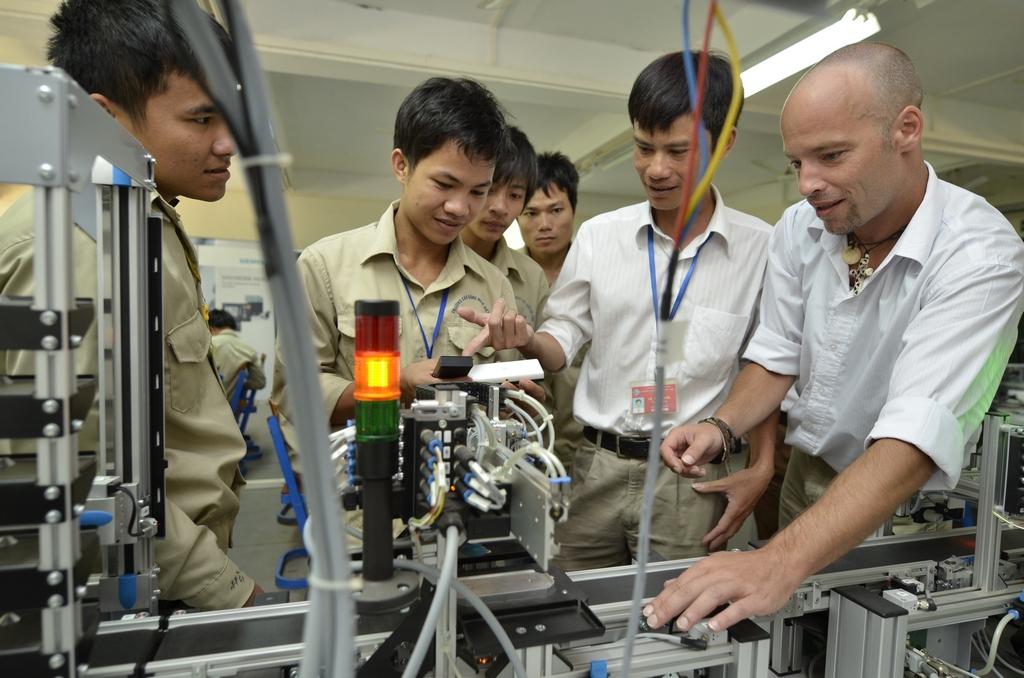PREMA® - Profitable Resource Efficient Management

© GIZ, Prema
Through systematic integration of the non-product output (NPO) perspective and of environmental aspects in the company's management, the PREMA® concept and its instruments aim at achieving a triple win: improvement of economic competitiveness through cost savings, reduction of environmental impact through more effective use of raw materials as well as sustainable implementation of improvements through organisational learning, including improvement of workplace safety.
Main features and components
Profitable Resource Efficient Management includes resource management, good housekeeping, environment-oriented cost management and an integrated management system.
PREMA® modules have been developed in collaboration with co-operation projects and local partners. At least 300 training courses (including 55 training-of-trainers) have been carried out in 33 countries reaching 3,500 entrepreneurs and consultants in Latin America, Africa, Asia, and Europe.
Implementation and work steps
- Analysis of the flow of materials and Non Product Outputs (NPO)
- Analysis of costs and environmental impact of NPO
- Analysis of problem causes
- Development of measures to address problems
- Implementation of measures
- Evaluation and integration of measures
Lessons learnt
- The economic angle of the “triple win” (reducing cost through increasing productivity, quality, resource efficiency, etc.) is the key selling point to catalyse companies to embark on a change process. Entrepreneurs are not inclined to join environmental programmes, as such, although they do consider a reduction of environmental impact and improvements in workplace safety and occupational health as useful valued-added.
- Entrepreneurs naturally concentrate on implementation. It is rather difficult to convince them to document results achieved, even though such data is extremely useful for monitoring and evaluating performance improvements and communicating successes. Therefore, a concept for documentation and dissemination is integrated into any training approach from the beginning.
- Services, even those provided to SME, should (as far as possible) be paid for. Something that is offered free of charge is not adequately valued, whereas market-oriented services can be institutionalised and more sustainably disseminated.
Requirements
Industries with the willingness of changing/improving their production methods
Output
- Cost savings and increase in productivity
- Less waste, air emissions and effluents
- Improved capability to implement
Useful links
Downloads
Characteristics
Phase of intervention
Operating SIA, Management, Resource efficiency
Level of intervention
Company, Park management
Regions
Global
Target groups
Company, SME, Industrial area management and operator, Local and international consultant and advisor, Municipality